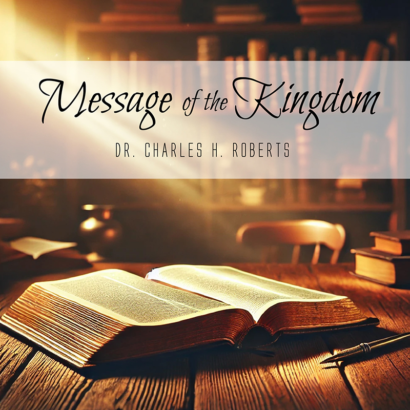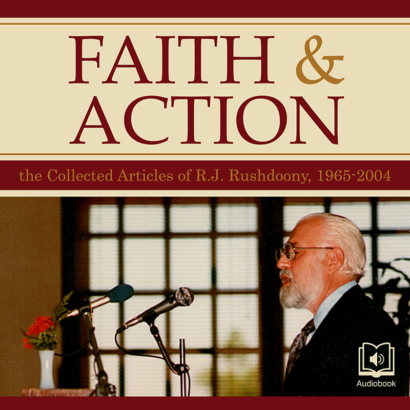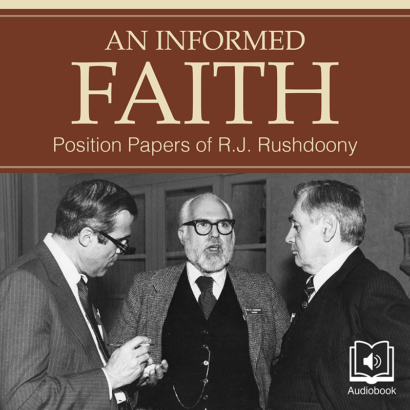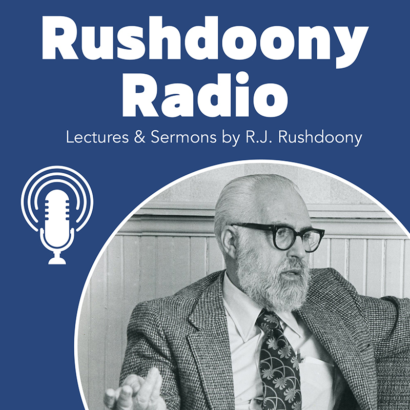
S is for S.T.D.
• Jul, 24 2024
In this episode of Preschool Pioneers, host Jeremy Walker discusses the critical need for Christian parents and educators to teach children about sexuality, tolerance, and dominion from a biblical perspective. Emphasizing the importance of countering misinformation, he delves into the significance of discussing human sexuality within the framework of marriage, the true meaning of tolerance as loving others by upholding God's commandments, and the concept of dominion, where Christians are called to bring every aspect of their lives under God's rule. Jeremy underscores the consequences of neglecting these teachings and encourages proactive, faith-based education to guide children towards a blessed life.
Hosted by
Husband, Father, Pastor, Teacher, Podcaster, and Christian Education Advocate
- Series: Preschool Pioneers
- Topics:
Jeremy Walker (00:15):
And welcome back to another episode of Preschool Pioneers. I am your host, Jeremy Walker. You can follow us on our parent network CR101 Radio on social media such as Facebook, Twitter, Gab and YouTube. And you can subscribe to this podcast on your preferred platform so you never miss an episode. Visit cr101radio.com for these links. Well, well, well. Welcome back everybody to another episode of Preschool Pioneers. I'm glad to have you with me. This episode is entitled, S is for STD, the necessity of teaching children about sexuality, tolerance and dominion from a Christian perspective and the consequences for failing to do so.
(01:08):
Well, we always like to start Preschool Pioneers with discussing and talking about why Christians should become teachers. And the answer is always very simple, is that children need to be taught. That's right. Children need to be taught, and they need to be taught the truth about the world. There are lots of people that would like to teach your child and, of course, would like to teach the children of everyone in the world. They like to become teachers. They want to teach children their truth. And it is important for Christian parents and Christian teachers to be excited about teaching the truth that is real to our children.
(01:55):
And when we do that, when we do teach the truth and we give our children the real world, that gives them the proper information to withstand all the lies that come their way. To take the coined phrase of late, misinformation, we can counter misinformation before it reaches our children by giving them the correct information about themselves and about the world. So to go ahead and get started, we are going to be touching on three different subjects which people do not talk about, Christians in particular don't, but they should. And because they don't, there have been consequences.
(02:38):
One thing is sexuality. People don't like to talk about human sexuality, specifically Christians or the church. And a lot of times, parents find this to be an uncomfortable conversation to have for some odd reason, considering that sexuality is a huge part of a persons' life. It always will be. And in some ways, it will be dominated in some ways by sexuality. So it is very important for Christian parents and Christian teachers to be teaching the subject. Christian churches as well. We're going to get into that about what, why and how. Tolerance is our second topic we're going to be touching on. Everybody likes to talk about the concept of tolerance, and people saying that Christians are intolerant.
(03:28):
Well everybody is tolerant to a certain extent and everybody is intolerant also to a large degree. And we're going to touch on that. And the last concept is dominion and what that means and what it's all about. Because everybody believes in dominion and everybody exerts it. The only question is, how and when, what type? So I'd like to start with the first topic of sexuality. And we will not be getting into graphic detail. So no fear, dear listener. However, we are going to be talking about this from a biblical Christian perspective because this is a very biblical subject.
(04:10):
Now, if you have not sat down and taught your children systematically from the Bible, then you may not be aware that sex is a major topic of the Bible, both in doctrine, in other words, what God wants us to learn about this subject and to do and not do, but also in the stories, the historical stories we have in the Bible about what took place in people's lives. And sexuality dominates the land scheme all over the place throughout the Bible. You cannot teach the Bible without teaching about sexuality and the part it plays in our lives and what part it will play in your child's life as they grow up.
(04:59):
Let me start with first, Proverbs 5:15-21. Because some people believe that Christians are kind of prudes and they don't like sex. Sex is dirty. Bad word. Don't talk about it. Far from it. In fact, Christians and biblical Christians, they believe that it is something absolutely to be enjoyed and often. So let's go ahead and read. And we'll talk about this subject a little bit on this episode. Starting with Proverbs 5 verse 15 and following. "Drink waters out of thine own cistern and running waters out of thine own well. Let thy fountains be dispersed abroad and rivers of waters in the streets. Let them be only thine own and not strangers' with thee. Let thy fountain be blessed and rejoice with the wife of thy youth. Let her be as a loving hind and a pleasant roe. Let her breasts satisfy thee at all times, and be thou ravished always with her love. And why wilt thou, my son, be ravished with a strange woman and embrace the bosom of a stranger?"
(06:14):
The Bible is full of these types of passages, very, very much so. And I have, over the years, taught through Proverbs and many other books in the Bible and all the historical narratives throughout the Bible. And you are going to have to teach on these subjects if you want to properly teach the Bible. God wants you to know what he says about sex, how he created it, and what he wants you to do with it. So that's number one. As a Christian parent and a Christian teacher, we have to get across to people that sex is something created by God. That's right. God created mankind, male and female. And they come together in what God calls marriage, and they then start having children. They produce a family.
(07:06):
It is the second job that God gave to man was to be fruitful and multiply. God wants you to utilize the sex component of our creation and he wants you to do it often. That's right. Often. It is not seen as something that is to be just done just to produce. See, sex is a gift that God has given inside marriage to be enjoyed by both husband and wife to find fulfillment there. Some people, of course, will say, "Well, it's just a subject we shouldn't talk about." Well, you're going to have to leave out a large portion of the Bible. And for generations, they have. I remember growing up in the church, and no one from the pulpit ever sat down and would bring out verses like these, especially Proverbs 5:15-21. Why? It's talking about sex between husband and wife, and how he is supposed to be absolutely enthralled with his wife. That's right. Enthralled with her. He's supposed to want to be with his wife at all times. He finds her just so compelling, that's all he wants all the times.
(08:23):
Let her breast satisfy thee at all times and be ravished always with her love. No, no. We are not Christian prudes where sexuality is concerned. The only reason why Christians are called prudes is because they believe that you have to obey God's commandments in its use. In other words, there is no sex outside of marriage. Must be husband-wife come together. And now, of course, they can enjoy themselves and God's union of marriage as much as they want and he tells them to do it all the time to be absolutely ravished. This is not people who are being prudes. Far, far from it. This is something that young folk, as they get older, they are going to need to know about these subjects. And then of course the question comes up, well, what should we talk about? And to what degree should we be talking to people?
(09:23):
Well that's important. Because knowledge about sexuality should be given, and what I like to call, at age-appropriate levels and times. And I had somebody once tell me, when somebody's old enough to ask questions, they're probably ready now for more information. Now there is a certain level you don't go into and, of course, peak the little sinful minds of children, especially youth. But there is also a component which is factual. And back in the day when people were more rural and not so much city-oriented as we are now in our modern day, living on the farm and being around animals, sexuality was not some kind of a mystery. Animals were going to, of course, have sex and produce children in offspring. You were going to have your animals purposefully mate so you can have more sheep and more cattle and whatever. This was not a difficult concept to teach.
(10:16):
And of course, humans are pretty much the same in many ways as far as the mechanics are concerned. So it used to not be something you had to even sit down and think about or discuss or was even some kind of a mystery. But however, it's not wrong whatsoever as it becomes available, information is being asked about for children, to give them certain levels of it. And now, for me, I also suggest right before marriage, say the day before the wedding, the young man getting married and the young woman getting married should be sat down by their parents or somebody that they know and trust. And this person should then give them all the information that they need to know about themselves, about the opposite sex and what to expect so there's no mysteries and people can have proper information.
(11:08):
I think it's very good thing to, what some people call, to have the sex talk or the talk right before somebody is married and giving them all the information that a married couple needs to have. Now a lot of topics are going to be covered in the Bible. So if you just teach it, it's going to be there a whole bunch of dos and don'ts. And then there is the practical side of things that are not going to be in the Bible. And of course, fathers, mothers, are very much equipped to teach this to their children when the time comes and they should. Now, because this has been neglected, evil people have come in and evil people have been more than happy to teach children. And we see that currently in our landscape today.
(11:55):
But they are teaching evil, despicable, disgusting things. That's right. Evil, despicable, disgusting things. It's not that children should not be taught about themselves and eventually their sexuality. It's just that what perspective are you teaching it from? Are you coming from an evil, sinful perspective, giving lies. Somehow they say love is love whenever they're teaching certain doctrines about everything is the same. Well, no, it's not. Because when you violate God's laws where sexual contact is concerned, there are terrible consequences. And I did title this episode STD because sexually transmitted diseases seem to be a thing that nobody talks about anymore. Because all of a sudden, love is just love.
(12:45):
Well, no, it's not. The people that violate God's use of sexuality, they are paying the price. You cannot have promiscuous sex with just anybody you want to and have no consequence. AIDS came on the scene. Forrest Gump was a big movie for showcasing some of these things where Jenny ran off and sleeping around, just going to be the flower child, and came back riddled with disease and death. You are going to have to keep God's commandments where your body is concerned if you want to be blessed. And that's what we need to teach our children. God wants you to enjoy what he has given you. And sexuality is a wonderful thing, but it needs to only be done in the manner in which God has given it and the limitations in which he has given it. And he wants you to enjoy it. Go through the Bible. You can't miss it.
(13:43):
But let's go ahead. Let's jump to our next topic about tolerance. People love the concept of tolerance, and I'll read Romans 12:17-21 for this. "Recompense to no man evil for evil. Provide things honest in the sight of all men. If it be possible, as much as lieth in you, live peaceably with all men. Dearly beloved, avenge not yourselves, but rather give place unto wrath, for it is written, 'Vengeance is mine, I will repay,' saith the Lord. Therefore, if thine enemy hunger, feed him; if he thirst, give him drink. For in so doing thou shalt heap coals of fire on his head. Be not overcome of evil, but overcome evil with good."
(14:35):
This is a wonderful passage to explain what we are supposed to be teaching our children and our students. We are supposed to be very careful in teaching love, the concept of what it means to love others. See, we are supposed love all people, but that is defined as the keeping of the commandments. Loving others does not mean that you accept others and their evil deeds. It means that you do nothing to harm another person. But keeping the commandments of God towards those people, you are showing love. And you are supposed to love even evil people, people that break God's commandments, people that hate your guts, people that would like to see you and your family dead.
(15:24):
But what does that mean? It means simply this. You don't go looking for a fight. You don't go out of your way to try to harm them or their family. You don't try to tear down somebody's reputation. You don't go around insulting them just because they're sinners. That's right. This is not something that we do. But it doesn't mean that we're quiet. It doesn't mean that we don't teach the truth about what sin is. Now, they're not going to like that. They're going to hate that. They're going to call that hateful. By teaching the commandments of what a person's supposed to be doing, you are loving them. But they are going to call it hate. Because one of the hallmarks of evil people is that they call evil good and good evil.
(16:11):
But it's not about them, it's about you. And when people do hate you, when people do try to hurt you or your family, it's very simple what you're supposed to do. Do not try to retaliate. This is not what God wants us to do. It tells us to give place unto wrath. "Vengeance is mine," says the Lord. What is going to happen to somebody who tries to hurt you or your children is going to be far worse when God takes care of them than if you try to get back, to get even. Leaving place for God's vengeance instead of your own. This is what the Christians are called to do. We can have and live in this world when people hate us and want our harm and we can just give love. And love means I will do no harm to you. I will do everything to live at peace with you.
(17:06):
And if you don't want me to give you the truth, if you hate the truth, then I will not give it any longer. If you don't want me to tell you that you're sinning, that is fine. I will leave you alone. But it doesn't mean that I won't teach that sin is sin. It doesn't mean that I won't teach what sin is to my children and to my students. I'm just not going to go out of my way to find you and try to poke you in the eye that you're sinner, because I'm going to try my best not to upset you, not to harm you. And if you don't want the love of God, then you can go on your merry way and do your own thing. But it's our job to love people as much as we can.
(17:45):
And this passage even states that when you are good to them, if you see somebody in genuine need, they're hungry, you are generous, you feed this person. They're thirsty, you give them drink. In other words, you do not go out of your way to refuse to help somebody just because they hate you if they have legitimate need. Now, legitimate need doesn't mean you help them in their evil. It does not mean that you give them money knowing that they're going to go out and use that to hurt somebody. That's not what we're talking about here. We're talking about one-on-one level and people in genuine need and you showing the love of God to this person who doesn't deserve it. But you give it anyways.
(18:25):
And it says that when you do that, when you show that you're not like them, you're not hateful like them, then this is the worst thing you can do, heaping coals of fire on their head. This is a wonderful thing to teach our children. They don't have to worry about trying to hurt other people. You can love people, keeping God's commandments towards them. Try to help them as best you can. Give people help when they don't even deserve it on individual basis when there's a genuine need. And then let God take care of the rest.
(19:02):
Moving on to our third topic, dominion, a subject that most people do not know about or discuss, but Acts 17:30-31 is where I'm pulling from to discuss this. "And the times of this ignorance God winked at; but now commandeth all men everywhere to repent: because he hath appointed a day, in the which he will judge the world in righteousness by that man whom he hath ordained; whereof he hath given assurance unto all men, in that he hath raised him from the dead." See, dominion is a concept easily defined as an area that is controlled or governed by a person or an organization. This is their area of dominion. This belongs to them.
(19:52):
And as Christians, we declare that the world belongs to God. And in the past, he allowed men here and there to go about their way and their disobedience and their idolatry. But now that Christ has come, this time is over. And now, all men are commanded to repent. That's right. Commanded to repent. This is how we approach the world. We are teaching the truth. We love people so we give them the truth. And it is your problem if you decide to continue in your disobedience and your hatred of God. He's putting you on notice. We are the messengers. We are going to live under God. You are supposed to as well. But if you don't, there will be a judgment.
(20:39):
See, we are not only supposed to declare that God is in charge of all things, but we have to worry about our own dominion as well. We have to live in terms of that as Christians. This is what it talked about by keeping the commandments towards everyone. This is how you show that you are living in terms of God's dominion, God's rule, God's law. But we also have our own dominion. Each of us. Every individual, every family, everybody who is on earth has an area of dominion, and they're supposed to be bringing that area into accordance with God's commandments. So your family, yourself, your school, your everything. You are supposed to be having dominion over all the areas of your life and bringing those things under God, under his commandments. Tearing out the sin and the weeds of your life and in your family, in your business, and in your community, to do your best to do that.
(21:39):
It's not just an individual thing. What people call the culture war and why Christians are, what they call, losing influence is because of this. They have failed, Christians have, to exert dominion as they have been told. You are supposed to bring in yourself under God, your family under God, your community under God, your nation under God, and the world. Now, that's not done through violent revolutions, but it is done through teaching the commandments, through obeying the commandments, and trusting as God moves across the world and through history to bring all things under the feet of Christ. It's our job to teach it, and to teach this to our children.
(22:27):
See, these three areas are just a fraction of what we're supposed to be teaching. Children need the whole truth. And that truth comes from revelation. God gives us what is true. We are supposed to know it, we're supposed to believe it, and then we're supposed to teach it. And this is going to give life, to give light, to all people, not just to ourselves, not just to our children, but to everyone around us. See, Christians bring light and life to the world through the revelation that God has given them and through not only declaring it, but mostly in living it.
(23:08):
So if you want to be a successful Christian parent and a successful Christian teacher, then this is something that you are going to have to purposefully do. These types of topics are those things that you need to teach. Dominion being a big one, because people just don't talk about that too much. They get caught up in all the rhetoric of everyone else. We should stop letting other people take the wheel. Stop letting them have the focus, us being reactionary teachers, reactionary parents. And we need to jump on as the point people in our own lives and specifically in the lives of our children.
(23:47):
Don't let somebody have you dancing to their tune. Pick up the Bible, read it, get the doctrines that you need to teach, and then begin living them and teaching them to your children, and of course, to your students. This can never be overstressed. Well, I wanted to thank everybody for joining me. I love having these little conversations and talking about why Christians should become teachers and why we're all so important, and of course, what we need to do. Pointing us in the right direction, trying to help ourselves as parents, learn God's commandments, and hopefully, transmit that to our children and see them have a blessed life.
(24:30):
Well, thank you again for joining me on this episode of Preschool Pioneers. Join me again on our next episode with new topics and telling you to do a great, wonderful job under God. Thank you and God bless.
More podcasts in series

B is for Behavior
Jun 10, 2025

A is for Apprenticeship
Mar 03, 2025

Z is for Zombieland
Dec 19, 2024

Y is for Your Body, You Choice
Nov 10, 2024

X is for Xenophile and Xenophobe
Oct 21, 2024

W is for Whiteness
Sep 23, 2024

V is for Values
Sep 16, 2024

U is for Uncommon
Sep 07, 2024

T is for Transformers
Aug 26, 2024

R is for Raising Rebels
Jul 23, 2024

Q is for Quitting
Jul 22, 2024

P is for Pyramids
Jun 26, 2024

O is for Opportunity
Jun 19, 2024

N is for Nationalism
Jun 13, 2024

M is for Mind Magnets
May 19, 2024

L is for Lowering Standards
May 12, 2024

K is for Kool-Aid
Apr 28, 2024

J is for Justified
Apr 15, 2024

I is for Integration
Apr 08, 2024

H is for Homeschooling
Apr 01, 2024

G is for Godly Fathers
Mar 25, 2024

F is for Flat Earth
Mar 18, 2024

E is for Economics and Entrepreneurship
Mar 12, 2024

D is for the Department of Children and Families
Mar 12, 2024

C is for Childbearing
Mar 12, 2024

B is for Bears, Beets, and Battlestar Galactica
Mar 12, 2024

A is for Abandonment
Mar 12, 2024









